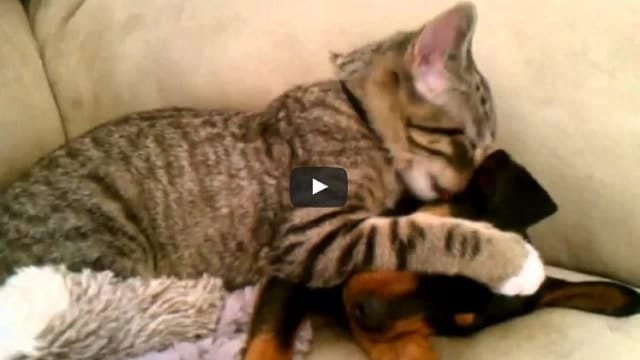It might seem a bit like a joke about the excesses of rich people, however, trust funds for pets are a real thing, and they’re increasingly popular for people of all income brackets as a way to ensure their beloved pets are cared for.
However, if it’s more common for pets to have trust funds, what actually happens to those pets when their owners pass away?
There are some pets are entrusted to family members or friends, and these arrangements are made before the owner passes away.

You might find the perfect shelter cat who also comes with all its bills paid for life. (Photo: casey christopher/Shutterstock)
However, sometimes, those pets end up in shelters — and shelters just want to find the perfect new owner for the animal.
Real-life examples of trust fund pets that found new owners.
Take the example of a Mill Valley, of California, a woman who is on a fixed income but had searched for some time for a pet cat. ABC 7 News reports:
Lynda Kline adopted her cat, whose name is Ayngel, about a year ago. “She loves to cuddle in my lap and the company is great for me,” Kline stated.
Kline lives on a fixed income and she never thought for even a moment that she would be able to afford a cat. However, she wanted one so badly she would surf the internet and dream.
“One day, I couldn’t resist going on Pet Finder. Lo and behold, I saw something I have never seen before – a cat with a trust fund,” she went on to say.
That would be correct – Ayngel is a trust fund kitty!
The story of Lynda finding Ayngel isn’t as rare as someone might think. Just last summer, a rescue group in Oregon got a call to help find a home for five cats together. The five cats were all left with a trust fund to cover food, litter and medical care for the rest of their lives.
And as ABC 7 News reported, the same rescue that placed Ayngel with Lynda had two more trust fund cats — Oliver and Sammy — who were both up for adoption.
While the trend of trust funds pets is slowly growing, there are some pitfalls.
For starters, never go looking to try and make money off animals with an inheritance.
Trusts are usually set up so that the adopter doesn’t get money directly, but rather expenses are paid directly by the trust, or the new owner gets a stipend to cover costs. And sometimes trusts can be very specific.
“For example, if your cat only likes a particular brand of food or your dog looks forward to daily romps in the park, this can be specified in a trust agreement,” the ASPCA explained. “If you want your pet to visit the veterinarian four times a year, this can also be included.”
So while you may have the cost of care covered, you might also end up with very specific care instructions. And though you won’t come into a huge wad of money by adopting a trust fund pet, you just might find a friend for life who doesn’t carry any financial burden.
If you’re looking for a pet and living on a limited income, you should begin networking with local and national rescues. Start conversations with shelter workers to let them know the kind of pet you’re looking for, and that you’re seeking one that has a trust to assist with the costs of care.
It may take a bit time, but if you’re persistent with your search and stay on top of the networking process, you just might find your perfect. and perfectly paid for, rescue pet.
[mashshare shares=”false”]









